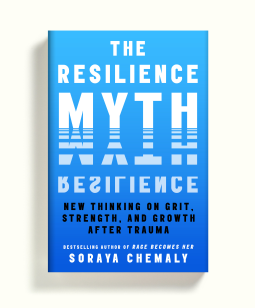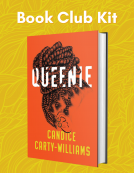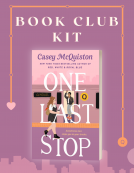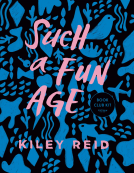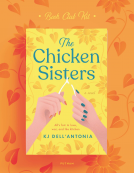The Resilience Myth
New Thinking on Grit, Strength, and Growth After Trauma
by Soraya Chemaly
You must sign in to see if this title is available for request. Sign In or Register Now
Send NetGalley books directly to your Kindle or Kindle app
1
To read on a Kindle or Kindle app, please add kindle@netgalley.com as an approved email address to receive files in your Amazon account. Click here for step-by-step instructions.
2
Also find your Kindle email address within your Amazon account, and enter it here.
Pub Date May 21 2024 | Archive Date Not set
Atria Books | Atria/One Signal Publishers
Description
The author of the “must-read” (NPR) Rage Becomes Her presents a powerful manifesto for communal resilience based on in-depth investigations into history, social science, and psychology.
We are often urged to rely only on ourselves for strength, mental fortitude, and positivity. But with her distinctive “skill, wit, and sharp insight” (Laura Bates, author of Girl Up), Soraya Chemaly challenges us to adapt our thinking about how we survive in a world of sustained, overlapping crises.
It is interdependence and nurturing relationships that truly sustain us, she argues. Based on comprehensive research and eye-opening examples from real-life, The Resilience Myth offers alternative visions of relational hardiness by emphasizing care for others and our environments above all.
We are often urged to rely only on ourselves for strength, mental fortitude, and positivity. But with her distinctive “skill, wit, and sharp insight” (Laura Bates, author of Girl Up), Soraya Chemaly challenges us to adapt our thinking about how we survive in a world of sustained, overlapping crises.
It is interdependence and nurturing relationships that truly sustain us, she argues. Based on comprehensive research and eye-opening examples from real-life, The Resilience Myth offers alternative visions of relational hardiness by emphasizing care for others and our environments above all.
Available Editions
| EDITION | Other Format |
| ISBN | 9781982170769 |
| PRICE | $28.99 (USD) |
| PAGES | 288 |
Available on NetGalley
NetGalley Shelf App (EPUB)
Send to Kindle (EPUB)
Send to Kobo (EPUB)
Download (EPUB)
Readers who liked this book also liked:
Book Club Kit: Queenie by Candice Carty-Williams
We Are Bookish
Literary Fiction, Multicultural Interest, Women's Fiction
We Are Bookish
Literary Fiction, Multicultural Interest, Women's Fiction
Book Club Kit: Mexican Gothic
Silvia Moreno-Garcia
Historical Fiction, Literary Fiction, Sci Fi & Fantasy
Silvia Moreno-Garcia
Historical Fiction, Literary Fiction, Sci Fi & Fantasy
Book Club Kit: Firekeeper’s Daughter by Angeline Boulley
We Are Bookish
Mystery & Thrillers, OwnVoices, Teens & YA
We Are Bookish
Mystery & Thrillers, OwnVoices, Teens & YA
Book Club Kit: Wild Game by Adrienne Brodeur
We Are Bookish
Biographies & Memoirs, Nonfiction (Adult), Parenting & Families
We Are Bookish
Biographies & Memoirs, Nonfiction (Adult), Parenting & Families
Book Club Kit: Miss Benson’s Beetle
Rachel Joyce
Historical Fiction, Literary Fiction, Women's Fiction
Rachel Joyce
Historical Fiction, Literary Fiction, Women's Fiction
Book Club Kit: The Rumor Game by Dhonielle Clayton and Sona Charaipotra
We Are Bookish
Multicultural Interest, Mystery & Thrillers, Teens & YA
We Are Bookish
Multicultural Interest, Mystery & Thrillers, Teens & YA
Book Club Kit: My Beautiful Black Hair by St. Clair Detrick-Jules
We Are Bookish
Arts & Photography, Health, Mind & Body, OwnVoices
We Are Bookish
Arts & Photography, Health, Mind & Body, OwnVoices
Book Club Kit: If the Shoe Fits by Julie Murphy
We Are Bookish
General Fiction (Adult), Romance, Women's Fiction
We Are Bookish
General Fiction (Adult), Romance, Women's Fiction
